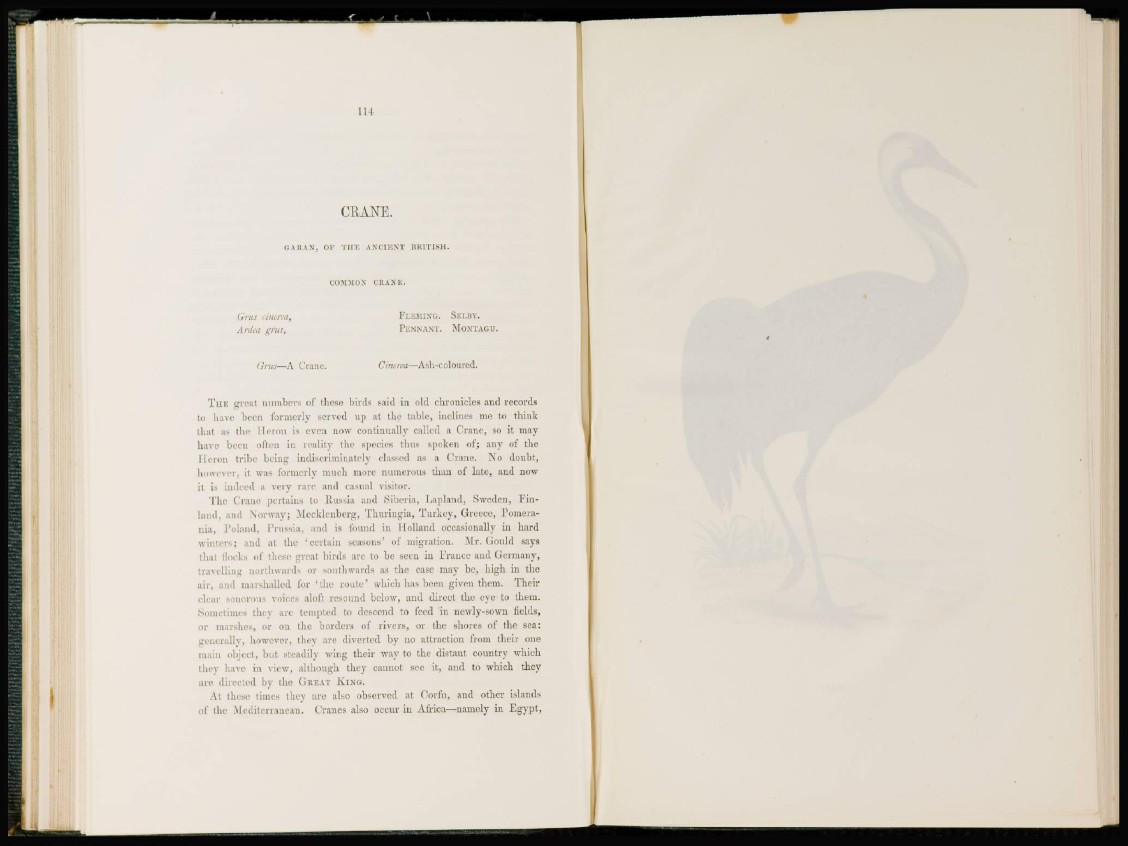
IK
CRANE.
OA RAN, OF THE ANCIENT BRITISH.
COMMON CRANE.
Grus a'/iena, FLEMING. SELBY.
Ardta grus, PENNANT. MONTAGU.
Grus—A Crane. Cinerca—Ash-coloured.
Tin: great numbers of these birds said in old chronicles and records
to have been formerly served up at the table, inclines me to think
that as the Heron is even now continually called a Crane, so it may
have been often in reality the species thus spoken of; any of the
Heron tribe being indiscriminately classed as a (Tane. No doubt,
however, it was formerly much more numerous than of late, and now
it is indeed a very rare and casual visitor.
The (Vane pertains to Russia and Siberia, Lapland, Sweden, Finland,
and Norway; Mecklenbcrg, Thuringia, Turkey, Greece, Pomerania,
Roland, Prussia, and is found in Holland occasionally in hard
winters; and at the 'certain seasons' of migration. Mr. Gould says
that Hocks of these great birds arc to be seen in France and Germany,
travelling northwards or southwards as the case may be, high in the
air, and marshalled for ' t h e r o u t e ' which has been given them. Their
clear sonorous voices aloft resound below, and direct the eve to them.
Sometimes they arc t e m p t e d to descend to feed in newly-sown fields,
or marshes, or on the borders of rivers, or the shores of the sea:
generally, however, they are diverted by no attraction from their one
main object, but steadily wing their way to the distant country which
they have in view, although they cannot see it, and to which they
are directed by the GREAT KING.
At these times thev arc also observed at Corfu, and other islands
of the Mediterranean. Cranes also occur in Africa—namely in Egypt,